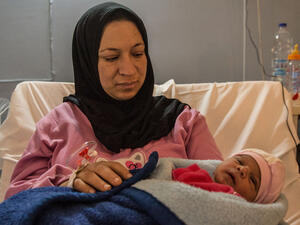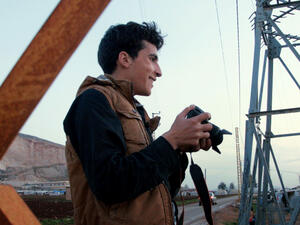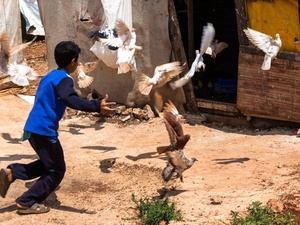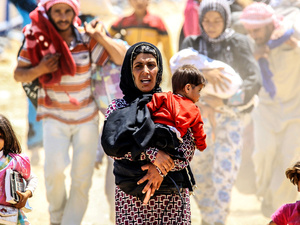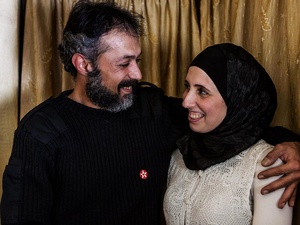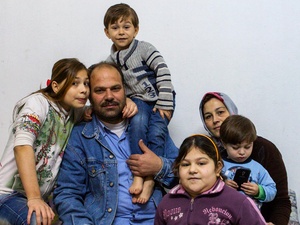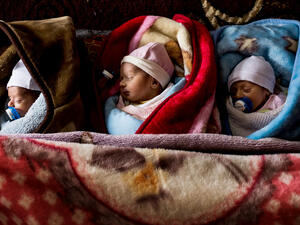Lebanon: Numbers of displaced in mountains still rising; UNHCR emergency team expected in Beirut
Lebanon: Numbers of displaced in mountains still rising; UNHCR emergency team expected in Beirut
The UNHCR emergency team spearheading our operations around the Lebanon crisis began arriving in Damascus yesterday and are expected to head to Beirut either today (Friday) or tomorrow. The first task of the team in Lebanon will be to reinforce our staff already carrying out preliminary assessments of the needs of tens of thousands of displaced people who have fled to mountain valleys outside Beirut for safety.
The needs of these people, particularly those living in communal buildings such as schools, will become critical if they don't get assistance. Tens of thousands of displaced have found shelter with family and friends, but it's unlikely such a difficult living situation can last for long without outside help. The host families will need assistance to ease the burden.
It is vital that there are safe corridors for humanitarian aid to reach those in need, but we have no guarantees yet of safe passage to the mountain regions. We are ready to release tonnes of supplies, including shelter materials, from our emergency stockpiles in Jordan and the Syrian Arab Republic (Syria) as soon as safe transport routes are worked out.
UNHCR is now present in the mountain regions of the Aleye Valley and the Kesrouan region, as well as in Sidon in the south. Our staff in one valley in the Shuf Mountains have reported that the number of displaced people arriving is still climbing steadily. Most of the new arrivals are finding places to stay with family and friends. There are some 80,000 displaced people in the Aleye Valley, some 22,000 of whom are living in schools where space is at a premium and sanitation facilities under pressure. One of the most urgent needs is for mattresses, and UNHCR has been scouring shops in Beirut and in the mountain regions buying up supplies and distributing mattresses to those people living in public buildings. Obviously, it will help when we can get the conditions in place to bring in our own regional supplies. UNHCR has considerable stocks already positioned in the Middle East region. In Jordan and Syria alone, for example, we have 250,000 blankets, some 50,000 mattresses, 30,000 kitchen sets, 22,000 tents, 17,000 stoves and other relief items. Additional quantities are available in Kuwait and Iraq.
We remain concerned about the safety and well-being of the approximately 20,000 refugees and asylum seekers, mainly Iraqis, in Lebanon. Those who have been approaching our Beirut office for assistance have been taken to public shelters where they have received assistance.
In Syria, our mobile emergency teams will be rapidly despatched to the field to monitor border crossing points for outflows of refugees and boost our current border monitoring presence. So far, more than 100,000 people have crossed into Syria. Most are Syrian nationals who have been working in Lebanon, but there are also Lebanese with family links not requiring assistance. Some 700 Lebanese families have needed help, however, and are living in schools and assisted by the Syrian Red Crescent.
UNHCR is working very closely with other UN agencies and the Lebanese government's High Relief Committee. The initial costs of the UNHCR operation are expected to be more than $18 million. A joint UN Flash Appeal is expected to be launched next week.


